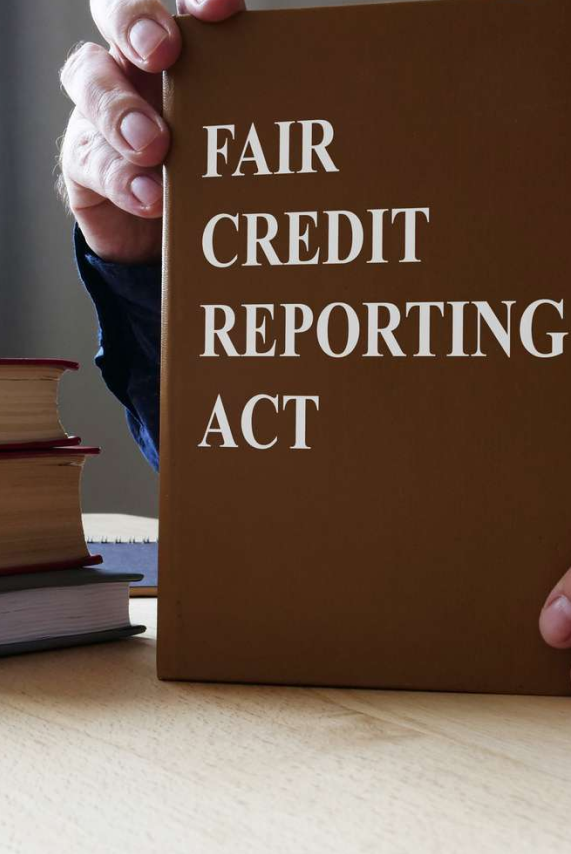Understanding the Fair Credit Reporting Act: Your Guide to Consumer Rights
Key Takeaways
- The Fair Credit Reporting Act (FCRA) established in 1970 mandates credit reporting agencies to maintain accurate, relevant, and private consumer credit information, and sets strict guidelines for the use and disclosure of consumer reports.
- Under the FCRA, consumers are entitled to various rights, including receiving one free credit report annually from each major bureau, being notified of adverse actions taken based on their credit report, and having the ability to dispute and correct inaccuracies in their credit files.
- The FCRA provides legal recourse for consumers, allowing them to seek actual, compensatory, and punitive damages for FCRA violations in state or federal court, and offers additional protections for special groups like active duty military personnel and job applicants undergoing employment background checks.

Exploring the Fundamentals of the Fair Credit Reporting Act (FCRA)
Within the financial ecosystem, the FCRA serves as a fundamental pillar. It was established in 1970 due to rising concerns over the misuse of consumer information. It was a time when the burgeoning credit reporting industry was like the Wild West, with few regulations to rein in the rampant exploitation of sensitive consumer data. The FCRA was the sheriff that rode into town, aiming to safeguard consumers by upholding the integrity and confidentiality of credit information. It set forth a mandate for credit reporting agencies, requiring them to adhere to reasonable procedures that preserve the accuracy, relevancy, and most importantly, the privacy of consumer credit information.
As custodians of consumer reports, credit reporting agencies, also known as consumer reporting agency, are obligated by the FCRA to guard consumer credit information vigilantly. These agencies bear the significant responsibility of collecting and managing credit data, positioning them as key players in the credit reporting process. The FCRA’s rules are not merely guidelines but a binding legal framework that ensures these agencies operate with precision and ethical conduct. It’s no small responsibility, considering the profound impact that credit reports can have on an individual’s financial journey.
The Role and Regulation of Credit Bureaus
- Credit evaluations
- Insurance underwriting
- Employment screening
- Tenancy decisions

Navigating Your Rights Under the FCRA
For consumers, the FCRA provides a wealth of rights that help navigate the complex world of credit reporting. Every 12 months, you are entitled to a beacon of transparency—a free credit report from each of the major credit bureaus. Should your credit information cast a shadow upon your financial dealings, leading to adverse actions such as denied loans or employment, the FCRA demands that you are notified, ensuring you are not left in the dark.
Furthermore, if you find yourself receiving less favorable credit terms or being subjected to firm offers of credit, creditors are compelled to illuminate the reasons, providing insight into how your credit report influenced their decisions. And if inaccuracies lurk within your credit files, the FCRA empowers you to challenge them, placing the onus on the credit bureaus to investigate and correct any verified errors.
Key Provisions That Empower Consumers

- Dispute and demand corrections
- Demand that credit reporting agencies follow reasonable procedures to maintain the integrity and accuracy of consumer credit information
- Take legal action against violations related to your credit reports
The FCRA empowers you to take these actions, providing a private right of action against violations related to your credit reports.
It is a powerful recourse that underscores the FCRA’s commitment to consumer rights. If a credit bureau or any other entity covered under the act flouts the rules, consumers are not left without recourse. They can pursue justice through the courts, seeking to rectify the wrongs and holding those at fault accountable. It is a provision that not only corrects errors but also serves as a deterrent against negligence and willful misconduct in the handling of consumer credit information.
Responding to Identity Theft and Fraud
Identity theft and fraud pose significant threats to consumer security within the less illuminated parts of the financial world. But even here, the FCRA extends its protective hand, offering consumers a shield in the form of fraud alerts and security freezes. These tools lock down your credit reports, signaling to potential creditors the need for heightened vigilance and impeding the approval of unauthorized transactions.
Should you suspect that the specter of identity theft has targeted your credit file, the FCRA enables you to block the tainted information and requires credit bureaus to purge fraudulent data.
Steps to Place a Fraud Alert
Should you perceive a threat to your financial identity, placing a fraud alert is like setting an alarm system for your credit files. Initiating this alert is straightforward—contact any one of the three nationwide credit bureaus. That single call sets into motion a chain reaction; the agency you’ve alerted is duty-bound to inform the other two, ensuring a blanket of security is cast across your credit landscape.
An initial fraud alert lasts for 90 days, during which any attempt to secure credit in your name triggers a verification process to confirm your identity.
Rights for Identity Theft Victims
Victims of identity theft are not left to navigate their plight alone; the FCRA arms them with specific rights to restore their financial integrity. One of the most potent tools at their disposal is the ability to request and obtain transaction records related to the theft from businesses. This not only aids in piecing together the puzzle of fraudulent activity but also enables victims to take the necessary steps in reclaiming their financial identity.
For those caught in the pitfalls of identity theft, the FCRA shines a light on the path to recovery.

Legal Enforcement and Seeking Damages
Beyond serving as an advisory document, the FCRA also acts as a potent legal tool for consumers seeking justice. When credit reporting agencies or collection agencies overstep their bounds, consumers can bring their grievances to state or federal court, seeking redress in the form of actual, compensatory, and even punitive damages. Such legal action can be initiated depending on the jurisdiction or the location of the credit reporting agency’s headquarters.
The types of damages that can be awarded include:
- Actual damages: awarded for quantifiable financial harm suffered as a result of FCRA violations. There’s no upper limit to these damages if the violation was due to negligence or willful non-compliance.
- Compensatory damages: awarded to compensate the consumer for any emotional distress or other non-financial harm caused by the FCRA violation.
- Punitive damages: awarded to punish the credit reporting agency for particularly egregious violations and to deter future misconduct.
Special Considerations for Different Entities

Active Duty Military Personnel
As active duty military personnel hold the front lines of national defense, the FCRA equips them with a similar defense for their financial profiles. The act acknowledges the unique circumstances of military life, offering extended fraud alert options for these service members. An ‘active duty’ alert on their credit reports ensures that any credit application triggers additional identity verification steps, a safeguard against the threat of identity theft.
Moreover, the Military Credit Monitoring Rule includes the following provisions:
- Credit bureaus are required to offer free electronic credit monitoring services to active duty military consumers.
- The credit monitoring services will alert military consumers to significant changes or additions to their credit files.
- These provisions demonstrate the FCRA’s commitment to protecting the financial well-being of those who serve.
Employment Background Checks
Stepping into the professional arena, the FCRA sets the stage for a fair and transparent employment background check process. Employers must tread carefully, obtaining explicit consent from job applicants before delving into their credit reports. In the event of adverse actions based on the findings in these reports, employers are mandated to provide proper notices, upholding the FCRA’s stringent protections.
Applicants are not without recourse; they retain the right to verify the background check’s accuracy and contest any discrepancies found within their credit report.

The Intersection of FCRA with Other Financial Regulations
The myriad of financial regulations intertwines intricately, with the FCRA being a crucial part of this complex structure. The USA PATRIOT Act, for example, intersects with the FCRA, allowing federal agencies to access credit reports for national security investigations without the traditional legal barriers of a court order or subpoena. This expanded access, while crucial for national security, raises concerns about consumer privacy under the FCRA.
It is a delicate balancing act, striking a harmony between protecting consumer financial information and addressing the imperatives of national security.
Updates and Amendments to the FCRA
In response to the evolving financial landscape, the FCRA also adapts by undergoing amendments to cater to the shifting requirements of consumers and the credit industry. Major changes were introduced in 1996 and 2003, each reshaping the act and fortifying consumer protections.
More recently, the 2018 Economic Growth, Regulatory Relief, and Consumer Protection Act brought about further amendments, signaling the FCRA’s ongoing commitment to evolving alongside the financial arena it governs.
Summary
Embarking on the journey through the FCRA, we’ve navigated the act’s establishment, its role in regulating credit bureaus, and the rights it confers upon consumers. From empowering consumers to dispute inaccuracies and take legal action, to providing robust tools to combat identity theft and fraud, the FCRA stands as a bulwark of consumer protection. As we’ve seen, it not only guards individual rights but also adapts to the diverse needs of different entities, including military personnel and job applicants.
Let this exploration serve as a reminder of the power vested in you by the FCRA. You possess the right to safeguard your financial identity, to challenge inaccuracies, and to seek justice when those rights are infringed upon. Embrace these protections and navigate your financial journey with the confidence that the FCRA is your steadfast ally.
Frequently Asked Questionsn
The purpose of the Fair Credit Reporting Act (FCRA) is to promote accuracy, fairness, and privacy of consumer information in the records of credit reporting agencies, safeguarding consumers and ensuring the integrity and confidentiality of credit data.
You can get a free credit report once every 12 months from each of the major credit reporting agencies, as stated under the FCRA.
You can dispute inaccurate information in your credit report, and the credit bureaus are required to investigate and correct any verified errors.
If the FCRA is violated, you can file a legal claim in federal or state court to seek actual, compensatory, and punitive damages, as well as attorney fees.
Yes, the FCRA offers special protections for active duty military personnel, including extended fraud alerts and free electronic credit monitoring services.
